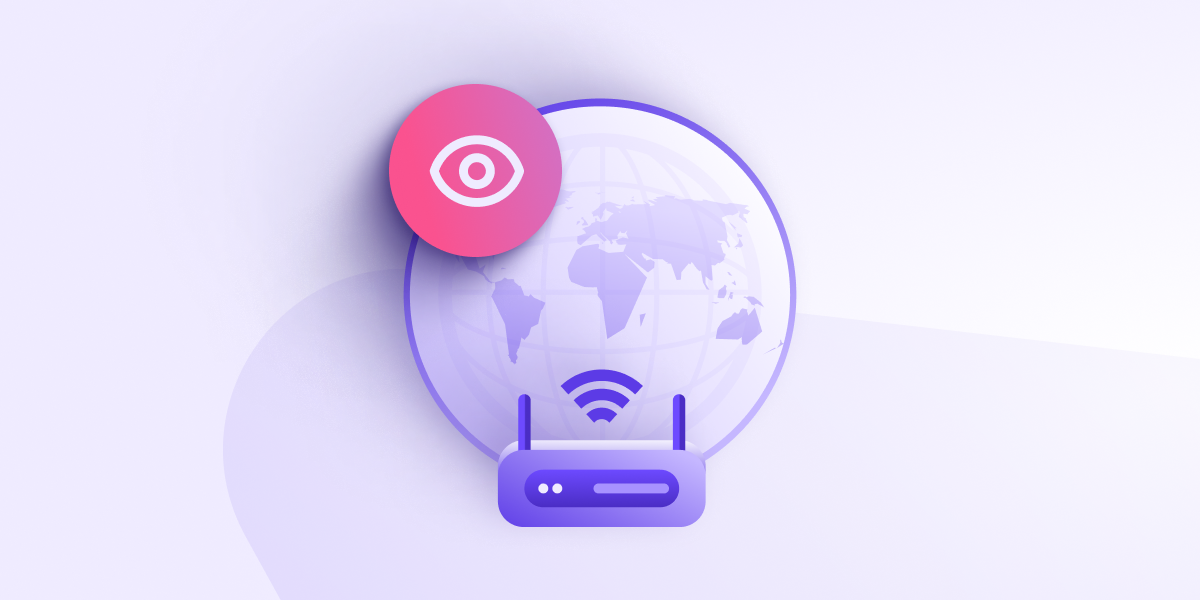What your ISP sees when you use VPN
When you go online, you require an Internet Service Provider (ISP). Whether it’s home Wi-Fi or cellular connections, ISPs can potentially track much of your online behavior. They can see which websites you visit, how long you spend on them, your device’s model, and more. To safeguard your online activity from ISPs and maintain privacy, the easiest solution is to use a Virtual Private Network (VPN).

ad
Can ISPs see VPN connections?
Yes, ISPs are capable of detecting when you’re connected to a VPN. However, while you’re using a VPN, they have limited access to your traffic. This is because VPNs encrypt your data, making it unintelligible to ISPs.
What does your ISP see when you’re using a VPN?
In summary, ISPs have limited visibility. They can only access information related to your VPN server. Below is a comprehensive comparison of the information visible to ISPs with and without a VPN:
ad
| Details | Without VPN | With VPN |
|---|---|---|
| Downloads | Download site, file size | Hidden |
| Browsing history | All URLs | Hidden |
| Time you spend on a web page | Timestamp with each URL | Hidden |
| Your location | Traced via IP address | Only VPN server IP |
| Times you connect | Full information | Only to VPN server |
| Data and bandwidth consumption | Full information | Only to VPN server |
| Torrenting | Your IP address | Hidden |
| Streaming | Service and duration | Hidden |
| Connecting port | Full port info | Only to VPN server |
This list clearly illustrates how a VPN effectively conceals and encrypts any data that could potentially track your online activities.
Why does the ISP still see some information?
The internet operates by routing data from one server to another. In order to connect online, you must start from some server. Your ISP will inevitably detect this connection to the VPN server. However, since VPN servers are shared among numerous users, the server details are widely known and hold no meaningful insights for ISPs.
Choosing the best VPN to hide your activity from your ISP
When your data is encrypted, only the sender and receiver possess the keys necessary to decrypt its contents. To any other party, it appears as unintelligible text. Most modern devices and services utilize 256-AES encryption, which is highly secure; even the fastest computers in the world would require billions of years to break it.
While encryption effectively shields your traffic from ISPs, a reliable VPN service streamlines the entire process while minimizing potential privacy vulnerabilities. When selecting a VPN, it’s essential to examine their data logging policies. Additionally, ensure that the service includes a kill switch feature, which halts your device from sending or receiving unsecured traffic in the event of a VPN connection dropout.
FAQ’s
Do ISPs have visibility into VPN connections?
Yes, ISPs can detect when you’re using a VPN, but they have limited access to the data being transmitted due to encryption.
What information is visible to ISPs when using a VPN?
While connected to a VPN, ISPs can primarily see that you’re connected to a VPN server. However, they cannot decipher the encrypted data, so specifics like browsing history and downloads remain hidden.
Why can ISPs still detect some information despite encryption?
ISPs can detect the connection to the VPN server as part of the standard routing process. However, the encrypted nature of the data prevents ISPs from accessing its content.
What factors should I consider when selecting a VPN for privacy from ISPs?
When choosing a VPN, consider encryption strength, a strict no-logs policy, server locations, and features like a kill switch. Look for robust encryption methods and assurance that your online activities won’t be logged. Additionally, ensure the VPN includes a kill switch to prevent data leaks if the connection drops.
Conclusion
VPNs offer effective encryption that prevents ISPs from accessing detailed information about users’ online activities. Prioritizing strong encryption protocols, strict no-logs policies, and essential features like kill switches ensures optimal privacy protection. By incorporating a VPN into their online security measures, individuals can maintain control over their digital privacy and security.
ad


Comments are closed.